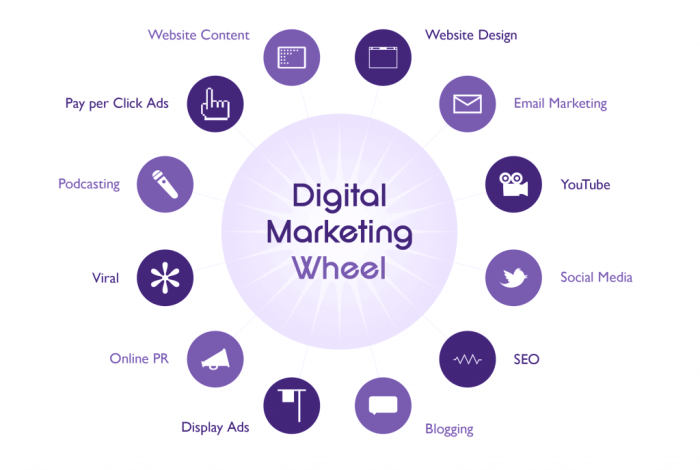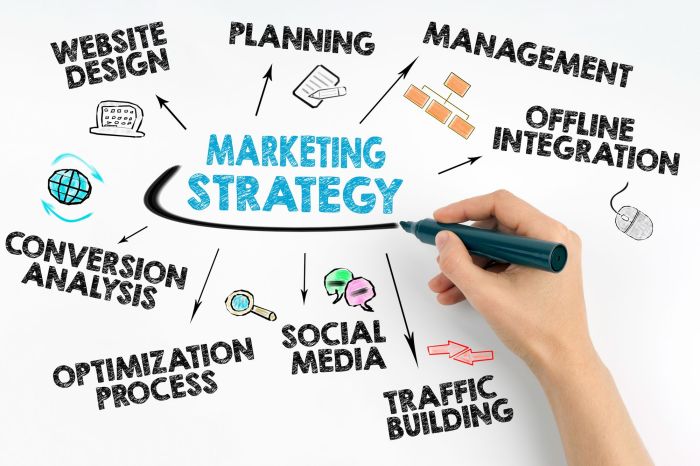Effective strategies for managing your digital marketing agency’s reputation are paramount to success. In today’s hyper-connected world, online perception significantly impacts client acquisition, brand loyalty, and overall growth. This guide unveils proven methods to proactively monitor your online presence, respond strategically to feedback, build a positive online image, and navigate reputational crises with grace and efficiency. By mastering these techniques, your agency can cultivate a thriving reputation, attracting top talent and securing lasting client relationships.
We’ll explore practical tools and techniques for tracking online mentions, crafting compelling responses to reviews, and leveraging employee advocacy to amplify your positive message. Learn how to transform challenges into opportunities, turning negative feedback into valuable learning experiences and strengthening your agency’s overall standing. This comprehensive approach will empower you to not only protect your reputation but actively build a strong, positive brand identity that resonates with clients and stakeholders alike.
Employee Advocacy and Internal Communication

Your employees are your agency’s most valuable asset, not just for their skills and expertise, but also for their potential to amplify your brand message and build a strong online reputation. Happy, engaged employees are more likely to share positive experiences, organically spreading the word about your agency’s excellence and fostering trust with potential clients. This positive word-of-mouth, combined with strategically managed online presence, forms the bedrock of a robust reputation management strategy.Employee advocacy significantly enhances your agency’s reputation by leveraging the trust and credibility employees have built within their personal networks.
Unlike traditional advertising, employee advocacy feels authentic and relatable, leading to increased brand awareness and a more positive perception of your agency. When employees actively promote your agency’s work and values, it creates a powerful ripple effect, extending your reach far beyond traditional marketing channels. This organic approach strengthens your brand identity and fosters genuine connections with potential clients.
Empowering Employees as Brand Ambassadors
To effectively leverage employee advocacy, provide your team with the tools and resources they need to become confident brand ambassadors. This involves clear guidelines on what and how to share information about the agency. Consider creating a comprehensive internal brand guide that Artikels your agency’s values, mission, and preferred tone of voice for online communications. Regular training sessions can equip employees with the skills to craft compelling social media posts, respond to online reviews, and engage in professional online discussions.
Moreover, providing employees with engaging content, such as case studies, blog posts, and infographics, simplifies their advocacy efforts and ensures consistent messaging.
Fostering a Positive Work Environment
A positive work environment is paramount for effective employee advocacy. When employees feel valued, respected, and empowered, they are more likely to be enthusiastic advocates for their agency. This involves creating a culture of open communication, feedback, and recognition. Regular team-building activities and opportunities for professional development can further boost morale and foster a sense of community. By prioritizing employee well-being, you cultivate a workplace where employees genuinely believe in the agency’s mission and are proud to represent it online.
This positive internal atmosphere translates directly into positive external perceptions.
Ensuring Consistent Messaging
Maintaining consistent messaging across all internal and external communications is crucial for building a cohesive and trustworthy brand image. This requires a centralized communication strategy that aligns all messaging across different platforms. For example, your agency’s website, social media profiles, email marketing campaigns, and internal newsletters should all reflect the same brand voice and key messages. Regular internal communication, such as team meetings and company-wide announcements, can ensure everyone is on the same page.
Furthermore, establishing clear guidelines for online communication and providing templates for social media posts can help ensure consistency in messaging across all channels. A consistent message reinforces your brand identity and builds trust with your audience, strengthening your online reputation.
Measuring and Analyzing Reputation: Effective Strategies For Managing Your Digital Marketing Agency’s Reputation

Understanding your agency’s online reputation isn’t just about vanity metrics; it’s about gaining actionable insights to fuel growth and solidify your position in the market. By consistently monitoring and analyzing key data points, you can proactively address potential issues, celebrate successes, and ultimately, build a stronger, more resilient brand. This allows for data-driven decision-making, leading to more effective strategies and a more positive client experience.Tracking your agency’s online presence requires a strategic approach.
It’s about more than just checking your social media likes; it’s about understanding the overall sentiment surrounding your brand and identifying areas for improvement. This involves utilizing reputation monitoring tools to gather comprehensive data and then interpreting that data to make informed choices. By visualizing this data effectively, you can easily communicate your progress and challenges to stakeholders.
Key Metrics for Tracking Online Reputation
Several key metrics offer a comprehensive view of your agency’s online reputation. These metrics provide a holistic understanding of how your agency is perceived online, enabling you to identify areas of strength and weakness. Tracking these metrics over time reveals valuable trends and informs strategic adjustments.
| Metric | Description | Measurement Method | Importance |
|---|---|---|---|
| Brand Mentions | The total number of times your agency’s name or related s are mentioned online. | Social listening tools, Google Alerts, brand monitoring platforms. | Indicates brand awareness and reach. High volume suggests strong visibility, while low volume may indicate a need for increased marketing efforts. |
| Sentiment Analysis | The overall emotional tone (positive, negative, or neutral) expressed in online mentions. | Sentiment analysis tools integrated into brand monitoring platforms. | Crucial for understanding public perception. Negative sentiment requires immediate attention and strategic response. |
| Star Ratings & Reviews | Average ratings and reviews on platforms like Google My Business, Yelp, and industry-specific review sites. | Directly from review platforms and aggregated through reputation management tools. | Direct reflection of client satisfaction and a key factor influencing potential client decisions. |
| Social Media Engagement | Metrics such as likes, shares, comments, and retweets on your social media posts. | Native analytics within social media platforms. | Measures audience engagement and the effectiveness of your social media strategy. Low engagement might indicate a need for content adjustments. |
| Website Traffic & Bounce Rate | Website traffic volume and the percentage of visitors who leave after viewing only one page. | Google Analytics and other web analytics platforms. | Indicates website effectiveness and user experience. High bounce rate suggests potential usability issues. |
Interpreting Data and Identifying Trends, Effective strategies for managing your digital marketing agency’s reputation
Analyzing the data gathered from reputation monitoring tools is crucial for understanding trends and pinpointing areas needing improvement. For example, a consistent decline in star ratings might suggest a problem with client service, while a surge in negative sentiment surrounding a specific project indicates a need for immediate corrective action and transparent communication. Identifying these trends allows for proactive problem-solving and strengthens your agency’s reputation.
Effective Reputation Reports for Stakeholders
Presenting reputation data effectively to stakeholders requires clear, concise, and visually appealing reports. These reports should highlight key metrics, identify trends, and offer actionable recommendations. A dashboard displaying key metrics over time, complemented by charts illustrating sentiment analysis and star ratings, provides a compelling visual representation of your agency’s online reputation. A concise summary highlighting significant changes and proposed actions further enhances the report’s impact.
For example, a report could showcase a 15% increase in positive mentions following a successful PR campaign, or a decrease in negative sentiment after addressing client concerns.
Building and maintaining a stellar reputation for your digital marketing agency is an ongoing journey, not a destination. By consistently implementing the strategies Artikeld here – from proactive monitoring and responsive communication to strategic crisis management and employee advocacy – you’ll cultivate a thriving online presence that attracts top clients and fosters lasting success. Remember, your online reputation is a reflection of your agency’s values, expertise, and commitment to excellence.
Invest in it wisely, and watch your agency flourish.
You also can understand valuable knowledge by exploring how to choose the right digital marketing channels for your business.
Find out about how how to attract and retain top talent in the digital marketing field can deliver the best answers for your issues.